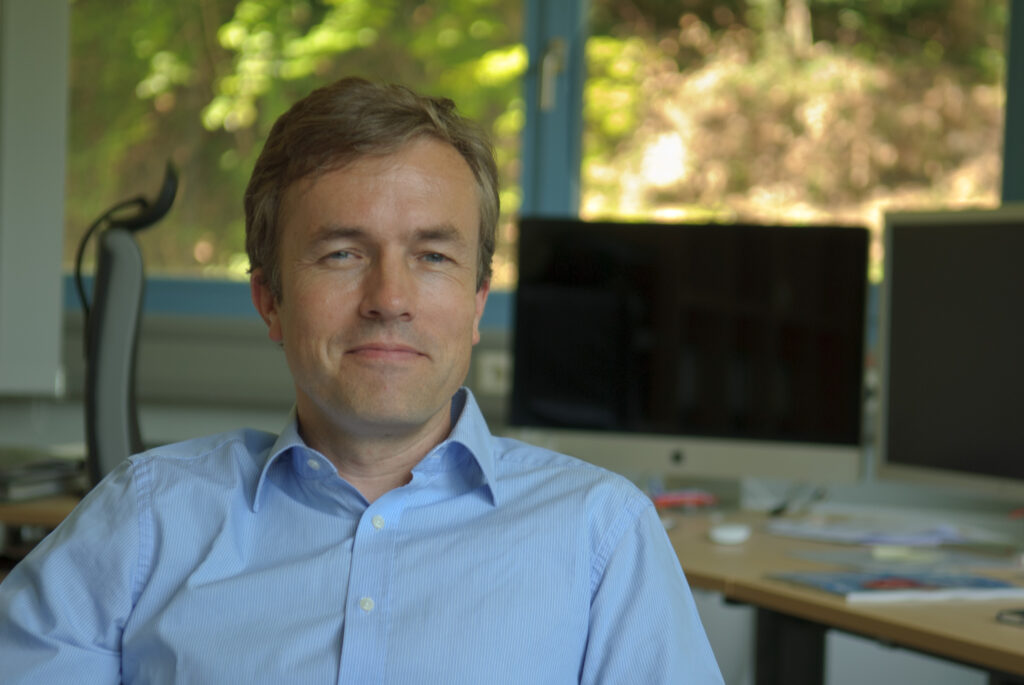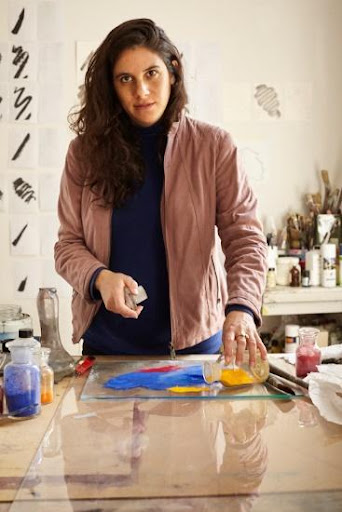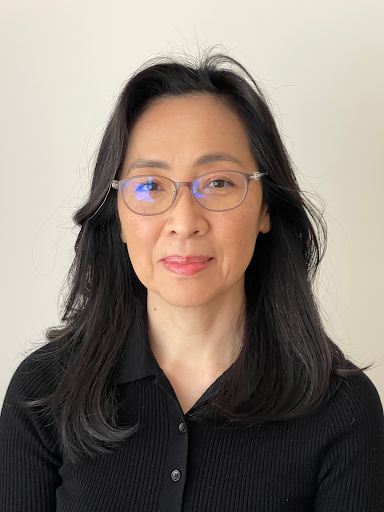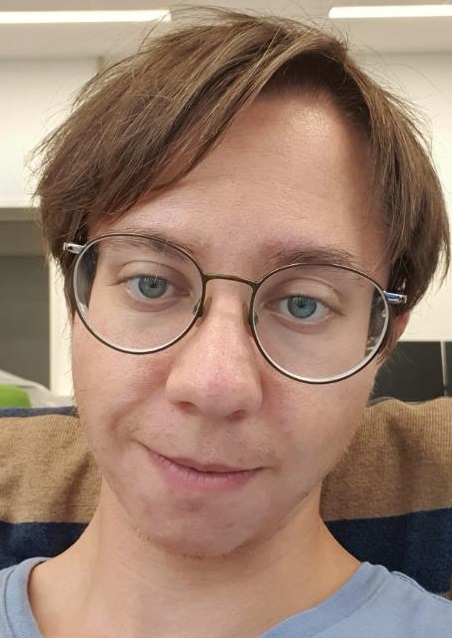Core Team
We are a team of experts from a variety of disciplines: art, philosophy, robotics, computer graphics, perception/cognitive science, and machine learning, all driven by the shared interest of studying the human art-making process and its embodiment in robots:
Project Director Germany – Oliver Deussen
Prof. Oliver Deussen is with the Department of Computer and Information Sciences at Konstanz University. He serves as the project director of EACVA from the German side. Deussen graduated from Karlsruhe Institute of Technology, and since 2003, he is a professor at the University of Konstanz, one of the Excellence Universities in Germany. 2008-2020, he was a visiting professor at the Chinese Academy of Science in Shenzhen (SIAT).
From 2019 to 2020, he served as President of the Eurographics Association. His areas of interest are information visualization, non-photorealistic rendering techniques, and sampling theory. He also contributed papers to geometry processing and image-based modeling methods. He is one of the speakers of the Excellence Cluster “Centre for the Advanced Study of Collective Behaviour” at the University of Konstanz. In his e-David project, he has been investigating robotic painting for over ten years.

Project Director U.K. – Frederic Fol Leymarie
Prof. Frederic Fol Leymarie is with the Computing Department at Goldsmiths, University of London. He is the Project Director of “EACVA: Embodied Agents in Contemporary Visual Art” for the U.K. team. He is a distinguished figure in the fields of computer science, artificial intelligence, and the visual arts. With expertise encompassing computer graphics, computer vision, gamification, and scientific visualization, he has made significant contributions to our understanding of the visual world.
In the realm of Computing, Fol Leymarie has mainly focused on problems in vision, graphics and geometry. In the past two decades, he seeks to better understand human intelligence by adopting a multidisciplinary approach, which has involved collaborating with experts in various fields, such as the visual arts, architecture, psychology, bio-sciences, art curating, and applied robotics.

In 2004, Leymarie joined Goldsmiths College and initiated groundbreaking graduate programs, including the MA/MFA in Computational Arts and the MSc and MA in Computer Games. His entrepreneurial spirit is evident through startups like London Geometry (2011) and DynAikon (2015), with ongoing support for ventures like Brarista since 2019. Together with artist William Latham, he is the co-founder of the Creative Machines series of events (2014, 2018, 2022, 2023, and forthcoming in late 2024): https://www.creativemachine.io/
More information: https://www.linkedin.com/in/folleymarie/
Artistic Director – Liat Grayver
Liat Grayver (1986, Kfar Yehezkel, Israel) is a Berlin-based cross-disciplinary painter and media artist investigating methods to redefine one of the primitive forms of art— painting— within the current technology-based era.
Since January 2016, Grayver has been collaborating with the University of Konstanz on the development of the e-David painting robot, exploring various approaches to integrate robotic and computer languages in the processes of painting and creative image-making. She is an active member of SALOON — Network for Women of Berlin’s Art Scene and an associate artist-researcher at the Epistemologien ästhetischer Praktiken program at ETH Zürich.
Liat Grayver’s artwork has been exhibited in various international museums, galleries, and institutions, including the Jewish Museum Silent Green (BE) Centre Pompidou, and the Museum of Natural History (TLV). work has received recognition in the art world through coverage in various media outlets and publications.

Co-Director Cognitive Science – Rebecca Chamberlain
Rebecca Chamberlain is a senior lecturer in the Psychology Department at Goldsmiths, University of London. Her research focuses on understanding how and why individuals create and respond powerfully to works of art. Rebecca began her academic journey with a foundation degree in Art and Design at the University of the Arts, London, before transitioning to Cognitive Science.
She completed her undergraduate and postgraduate studies in Experimental Psychology at University College London, where her research centered on the psychology and neuroscience of representational drawing ability. Following this, Rebecca worked as a postdoctoral researcher in Professor Johan Wagemans’ Gestalt Perception lab at KU Leuven in Belgium from 2013-2017. In 2017, she joined Goldsmiths as a lecturer.

Rebecca currently serves as the Programme Director of the MSc in Psychology of the Arts, Neuroaesthetics, and Creativity. She also holds the position of Editor-in-Chief at the journal Empirical Studies of the Arts. Rebecca’s research has been funded by prestigious organizations such as the British Academy, American Psychological Association, and Economic and Social Research Council. Her work explores topics in artistic expertise and aesthetics within both laboratory and gallery settings.
https://www.gold.ac.uk/psychology/staff/chamberlain-rebecca/
Co-Director Sociology – Tomoko Tamari
Dr. Tomoko Tamari is a senior lecturer at the Institute of Creative and Cultural Entrepreneurship, Goldsmiths, University of London. She is managing editor of Body & Society (SAGE).
Her recent interests focus on AI (artificial intelligence) and society, which was discussed in a series of webinar seminars (https://www.tomokotamari.com/ai-and-society-series). She is also working on contemporary digital media, with a recent edited collection, “Human Perception and Digital Information Technologies: Animation, the Body and Affect”, which appeared in 2024, at Bristol University Press https://bristoluniversitypress.co.uk/human-perception-and-digital-information-technologies.

Selected publications: Interview with Samantha Frost on ‘The Attentive Body’: Epigenetic Processes and Self-formative Subjectivity, Body & Society 27 (3); Human Perception and The Animated World’ in the Glossary of Animation Today of the research group of Animate Assembly 2020 (https://www.tomokotamari.com/blog/animate-assemblys-glossary-of-animation-today); Introduction: Human Perception and Digital Information Technologies and Moving Image, and Human Perception: Affect in Hand-drawn Animation and Computer-Generated Imagery in Human Perception and Digital Information Technologies, Animation, the Body and Affect, Bristol: Bristol University Press (2024).
She is currently working on the following areas: Body Image and Technology; Human Perception and the Moving Image; Artificial Intelligence and Creativity: Memory and Digital Archives. More information: https://www.tomokotamari.com/
Draw-Lab Development Lead & Artist – Daniel Berio
Daniel Berio is a lecturer at the computing department at Goldsmiths, University of London. He is also a computational artist and does research at the intersection between computer graphics, robotics, graffiti art, and calligraphy. He completed his Ph.D. in computing at Goldsmiths, where he researched methods for the computer-aided design and procedural generation of (synthetic) graffiti art and calligraphy.
Previously, Daniel specialized in multimedia software development, especially applications involving real-time hardware accelerated rendering and vector graphics techniques. Artistically, Daniel comes from a graffiti writing background and explores this same aesthetic in algorithmically generated forms.
Homepage: www.enist.org

E-David Lab Development Lead – Michael Stroh
Michael Stroh (1999, Friedrichshafen, Germany) is a Ph.D. candidate at the University of Konstanz after completing his master’s in computer and information science in 2023. His main research topic is about interactive robotic painting with AI support. He has been working at the Chair of Visual Computing in Konstanz since 2021 and focuses on applying image processing methods and machine learning to computer graphics and robotic painting frameworks.
He developed systems for automatic image abstraction for digital art and physical paintings, creating a complete pipeline from an arbitrarily selected input image to a final robotic painting. He aims to re-introduce human creativity and interaction into the automated abstraction process to create an interactive framework for robotic painting.
